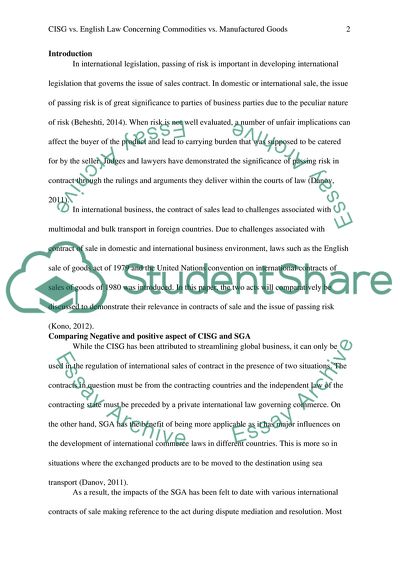Cite this document
(CISG, Commodities and Manufactured Goods Essay Example | Topics and Well Written Essays - 1500 words, n.d.)
CISG, Commodities and Manufactured Goods Essay Example | Topics and Well Written Essays - 1500 words. https://studentshare.org/law/1855941-cisg-vs-english-law-concerning-commodities-vs-manufactured-goods
CISG, Commodities and Manufactured Goods Essay Example | Topics and Well Written Essays - 1500 words. https://studentshare.org/law/1855941-cisg-vs-english-law-concerning-commodities-vs-manufactured-goods
(CISG, Commodities and Manufactured Goods Essay Example | Topics and Well Written Essays - 1500 Words)
CISG, Commodities and Manufactured Goods Essay Example | Topics and Well Written Essays - 1500 Words. https://studentshare.org/law/1855941-cisg-vs-english-law-concerning-commodities-vs-manufactured-goods.
CISG, Commodities and Manufactured Goods Essay Example | Topics and Well Written Essays - 1500 Words. https://studentshare.org/law/1855941-cisg-vs-english-law-concerning-commodities-vs-manufactured-goods.
“CISG, Commodities and Manufactured Goods Essay Example | Topics and Well Written Essays - 1500 Words”. https://studentshare.org/law/1855941-cisg-vs-english-law-concerning-commodities-vs-manufactured-goods.


